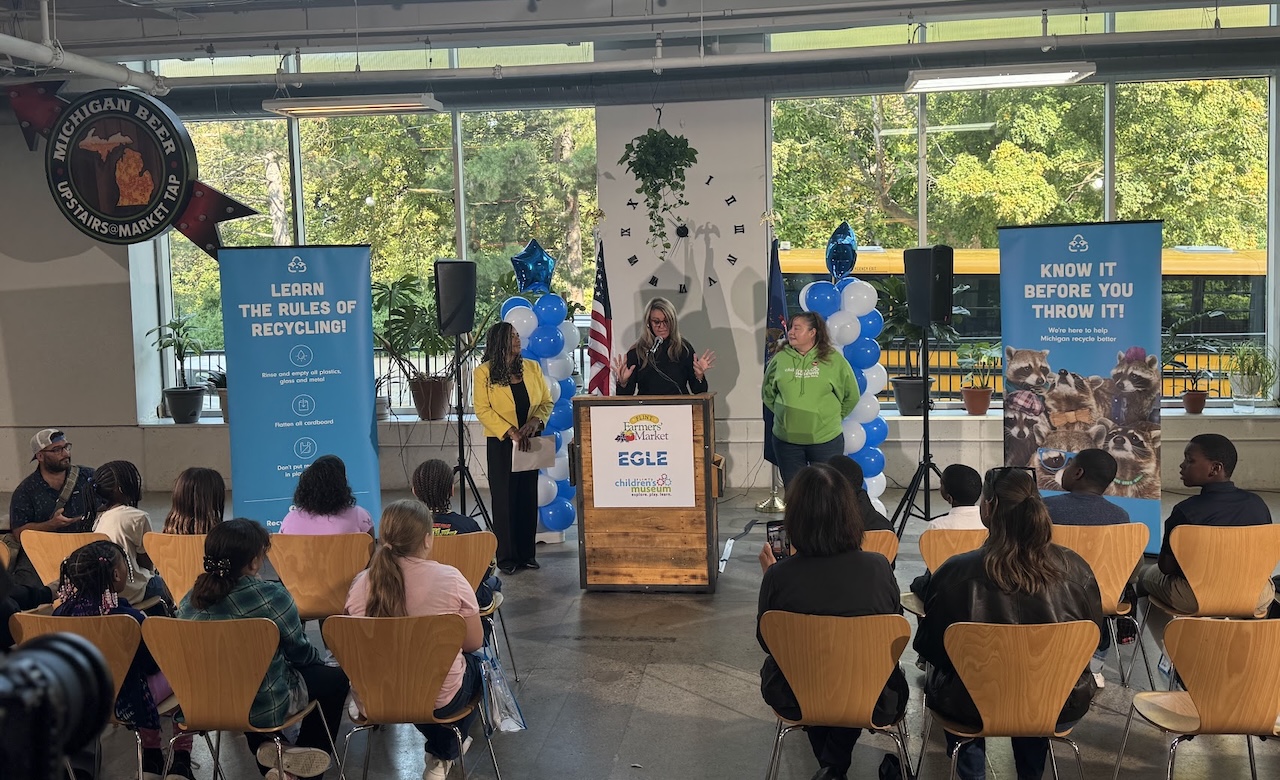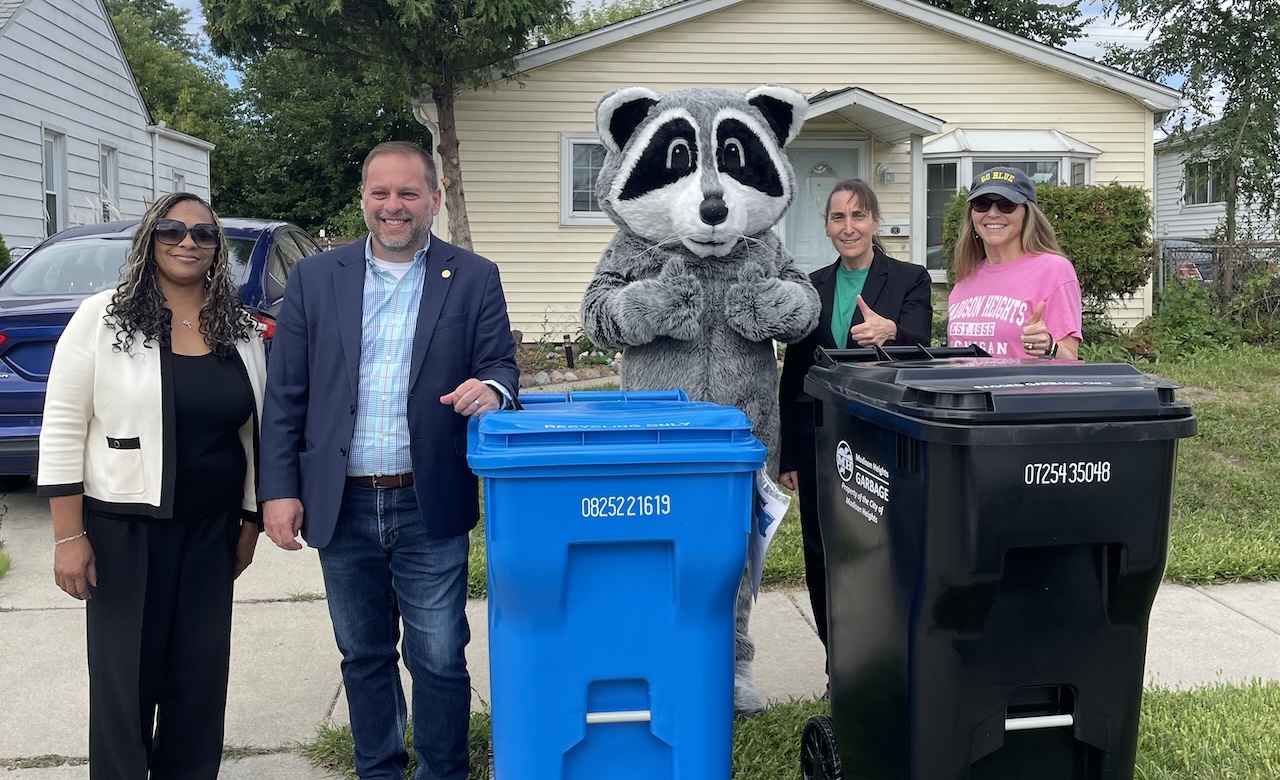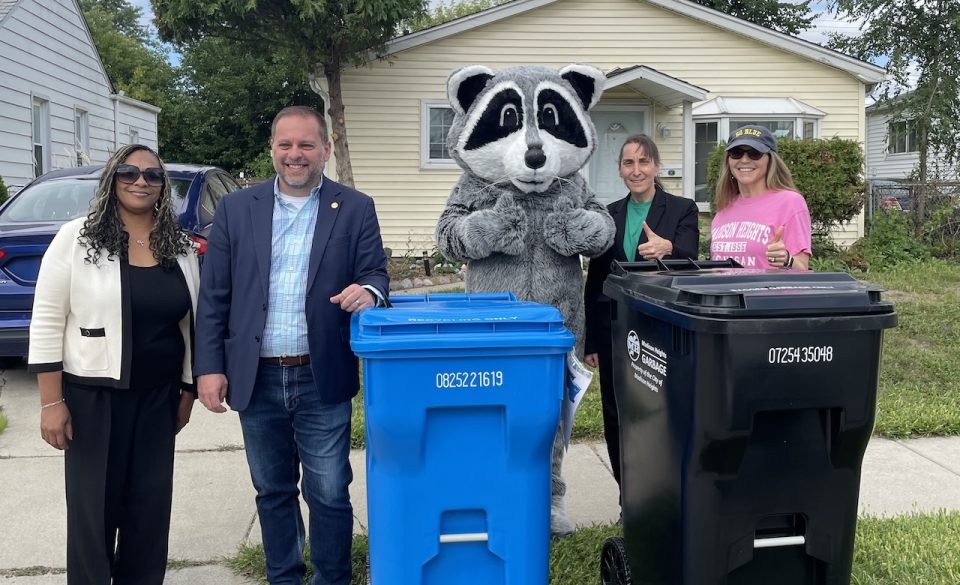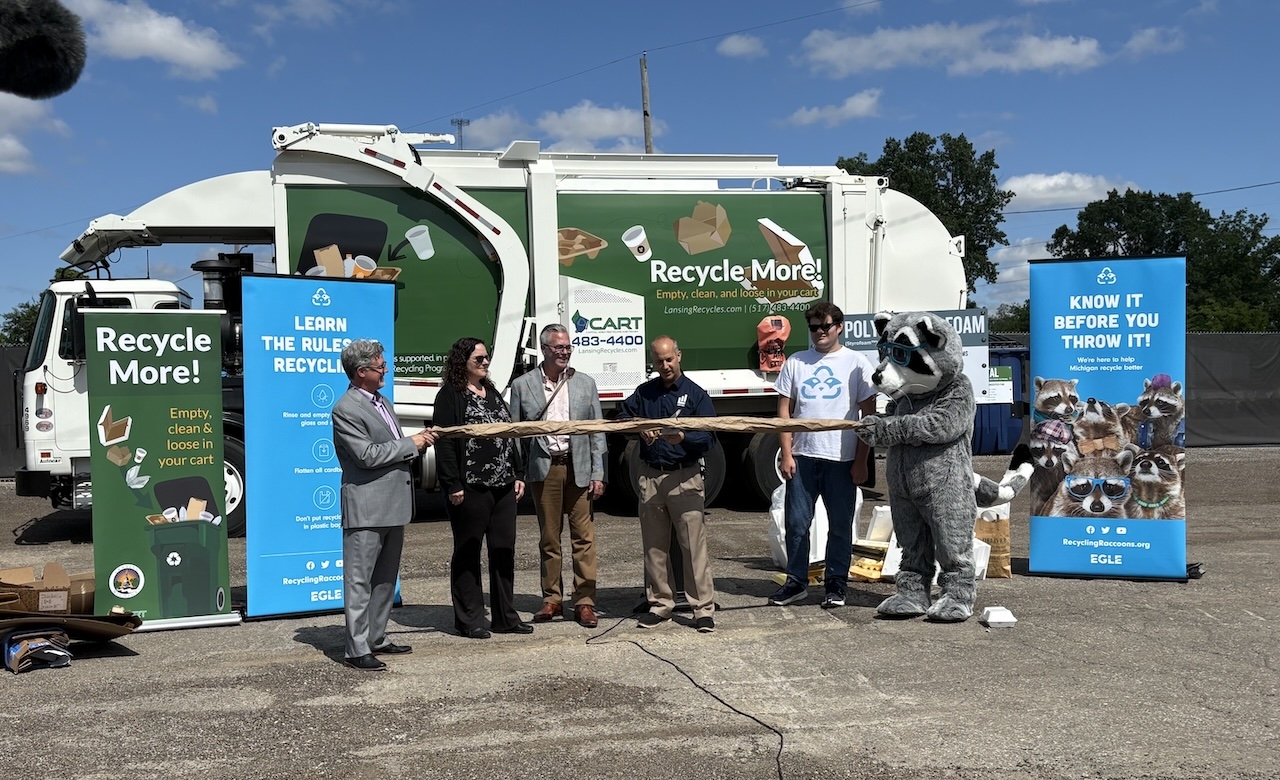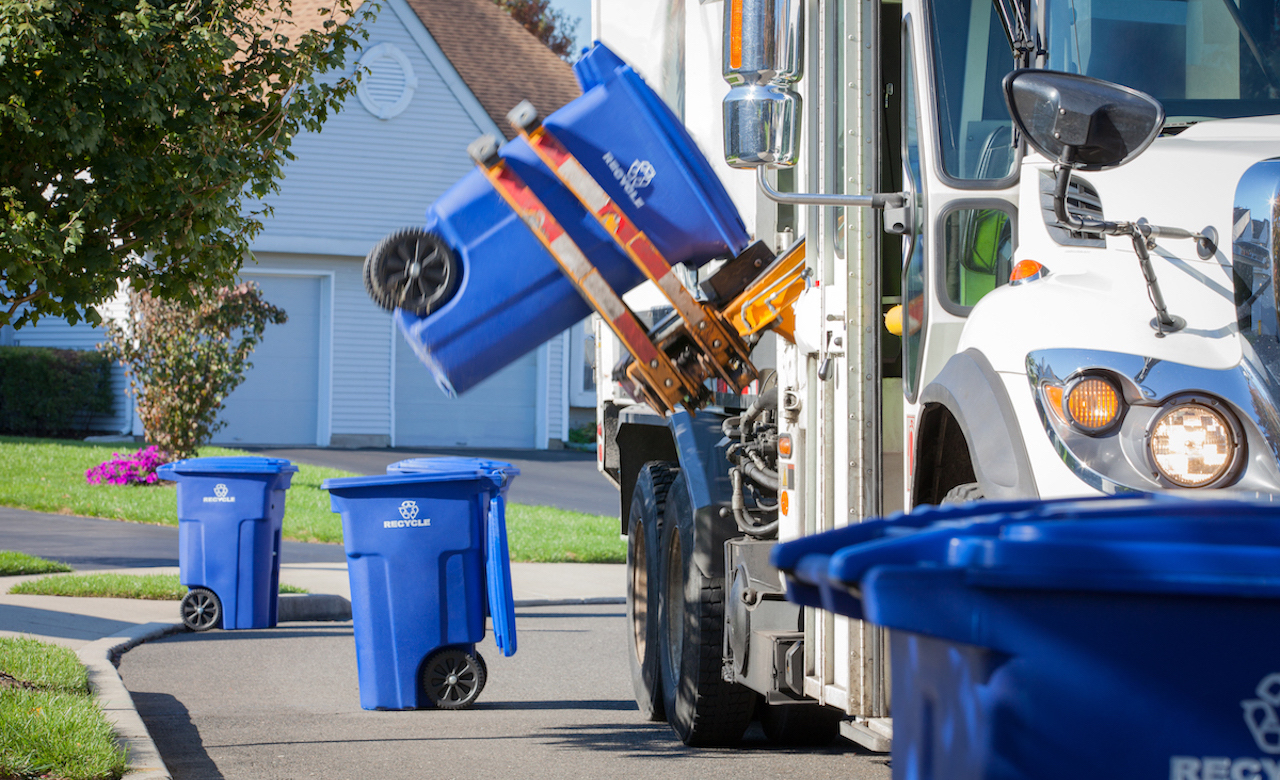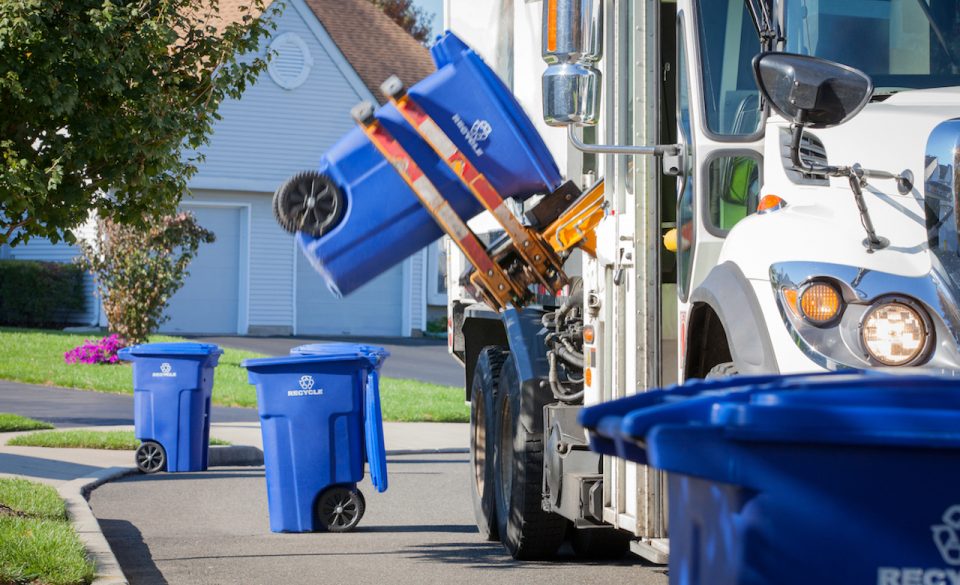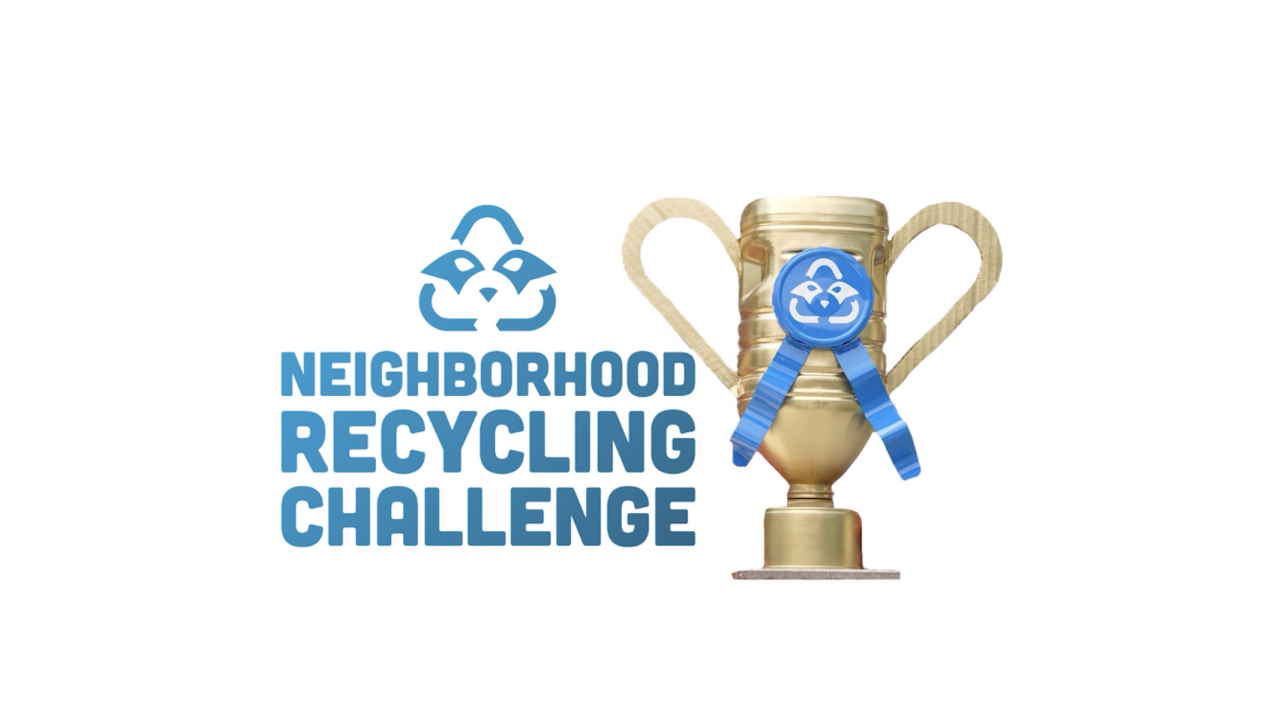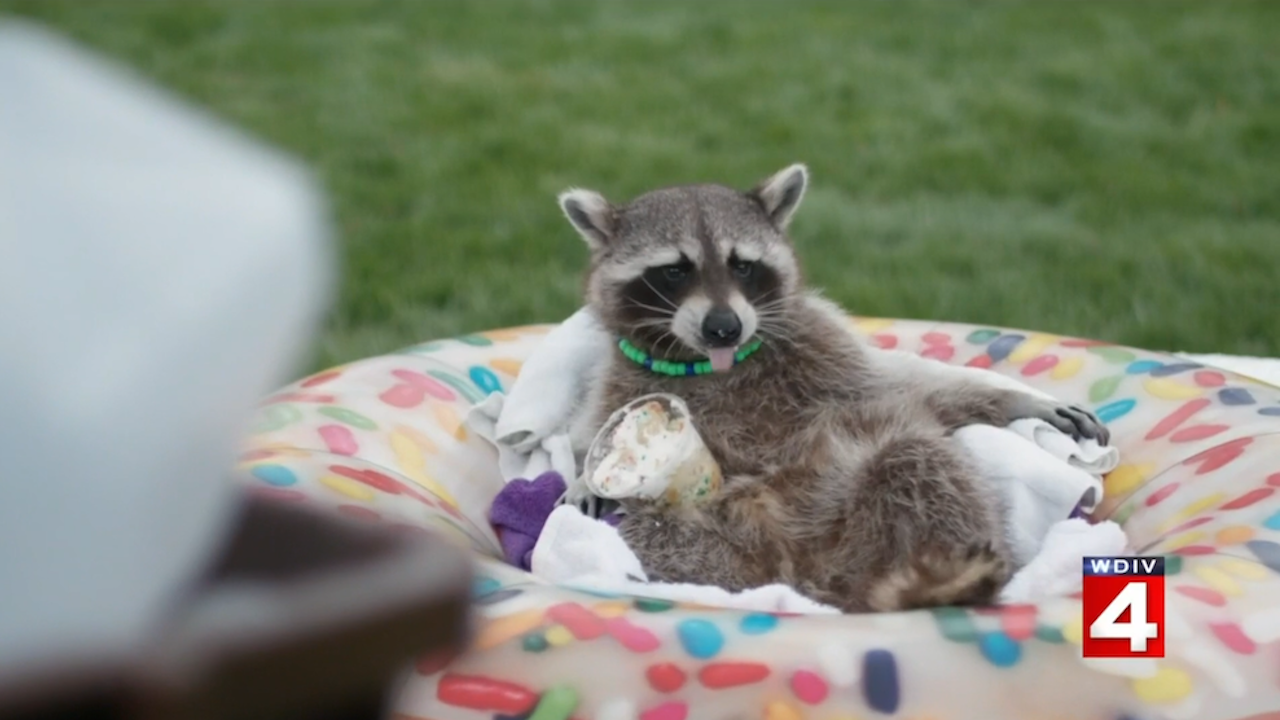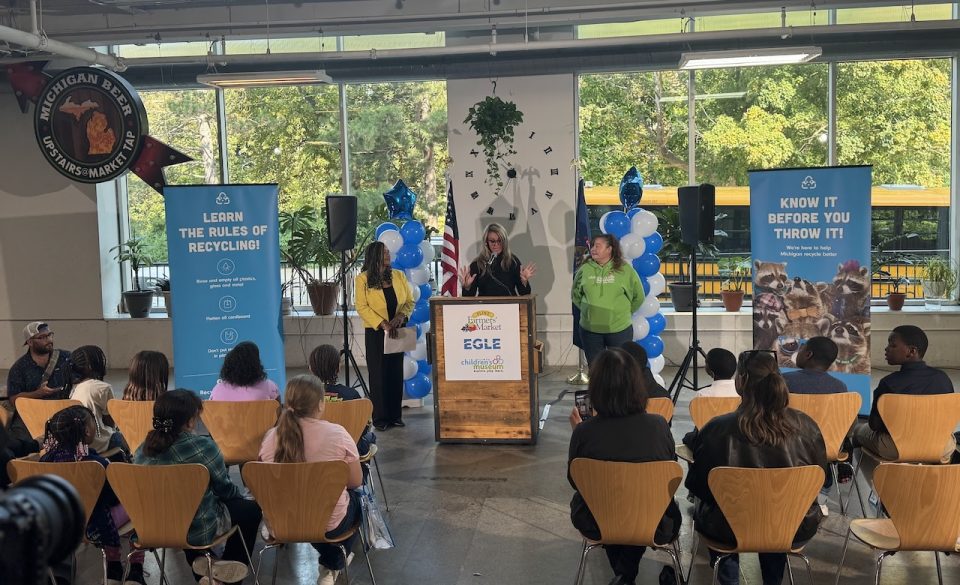
Installation debut offers kids fun activities to promote learning to care for planet by teaming up with Michigan’s nationally renowned Recycling Raccoons
FLINT, Mich. – Leaders with the Flint Farmers’ Market, Flint Children’s Museum and the Michigan Dept. of Environment, Great Lakes, and Energy (EGLE) today unveiled a new, hands-on recycling education exhibit that will benefit 100,000 elementary school-age youth annually from the Genesee County region.
“Our partnership demonstrates the Flint Farmers’ Market and EGLE’s commitment to meeting communities where they are, using creative partnerships to extend the reach and impact of environmental education beyond traditional classroom or office settings,” said Flint Farmers’ Market Manager Karianne Martus.
“By embedding educational activities within a high-traffic community gathering space, the partnership ensures that recycling education reaches families in a natural, accessible setting where learning can happen alongside everyday activities,” Martus said during a morning press conference attended by 4th-grade students from Flint’s Eisenhower Elementary School and adult chaperone volunteers.
The activities feature two key interactive components designed to make recycling education engaging and memorable:
Recycling Scavenger Hunt
- Features recycling stream categories with corresponding Recycling Raccoon
- Teaches essential recycling rules including proper cleaning, keeping items loose and cardboard flattening
Magnetic Sorting Game
- Custom magnetic table surface with3D printed game pieces representing various recyclable and non-recyclable items
- Hands-on sorting activity that reinforces proper recycling practices
The collaboration leverages the Flint Farmers’ Market’s significant reach—450,000 annual visitors, including more than 100,000 kids between ages 2-10 across weekly Tuesday, Thursday, and Saturday operations—to deliver hands-on environmental education through the Flint Children’s Museum’s interactive space within the market.
“By placing recycling education within the vibrant, family-friendly environment of the Flint Farmers Market, EGLE and the Flint Children’s Museum are making sustainable practices more accessible and engaging for families throughout the region,” said Flint Children’s Museum Visitor Services Manager Jacky Metcalfe.
EGLE announced this year the recycling rate in the Great Lakes State is at a record high, based on 2024 metrics. EGLE leaders attribute the state’s recycling success to its launch of the national award-winning “Know It Before You Throw It” education campaign featuring the Recycling Raccoon Squad, as well as EGLE funding for infrastructure and technical support for projects that increase access to recycling services across Michigan.
EGLE research shows Michigan has steadily increased its recycling rate from 14.25% before 2019 (when Michigan ranked among the nation’s lowest in recycling before the Recycling Raccoon campaign began) to 23% last year and an all-time high rate of over 25% now. EGLE forecasts that Michigan is on track to achieve the state’s goal of a 30% recycling rate by 2029.
In fiscal year (FY) 2024, Michiganders recycled more than 71,000 tons of glass, 329,000 tons of paper and paper products, and 56,000 tons of plastics and plastic products. The total amount of residential recycled materials reported for FY 2024 was 723,174 tons — exceeding the year before by more than 19,000 tons.
This equates to every person in Michigan recycling nearly 143 pounds of cardboard boxes, milk cartons, soup cans, plastic bottles, glass bottles and jars, food waste and other recyclable materials over a 12-month span. The volume of materials Michiganders recycled in FY2024 equals the weight of 10 Mackinac Bridges and would fill the football stadiums of the Detroit Lions, University of Michigan and Michigan State University, as well as the hockey stadium of NCAA men’s national champion Western Michigan University.
EGLE’s funding support of the Flint Farmers’ Market children’s recycling education builds on EGLE’s successful partnership with the City of Flint last year to launch the largest distribution of rolling, easy-to-use carts curbside recycling and trash carts in the city’s history. The delivery of nearly 70,000 free carts to more than 34,000 Flint households is projected to increase recycled materials from 624 tons per year to 5,400 tons annually.
“By increasing our recycling rate, we not only conserve natural resources but also generate significant economic benefits, supporting over 72,500 jobs and injecting billions of dollars into our economy,” said EGLE Environmental Justice Public Advocate Regina Strong.
“Every bottle, box, and can we recycle brings us one step closer to a sustainable Michigan where both the environment and our communities thrive.”
